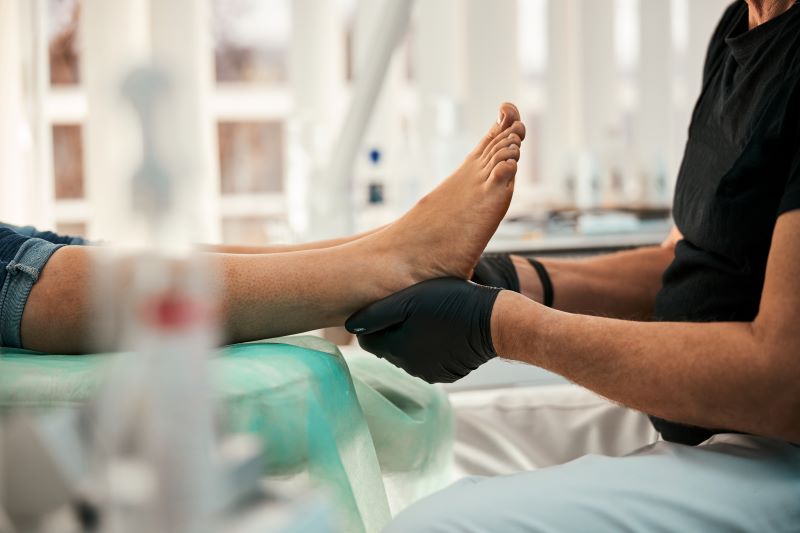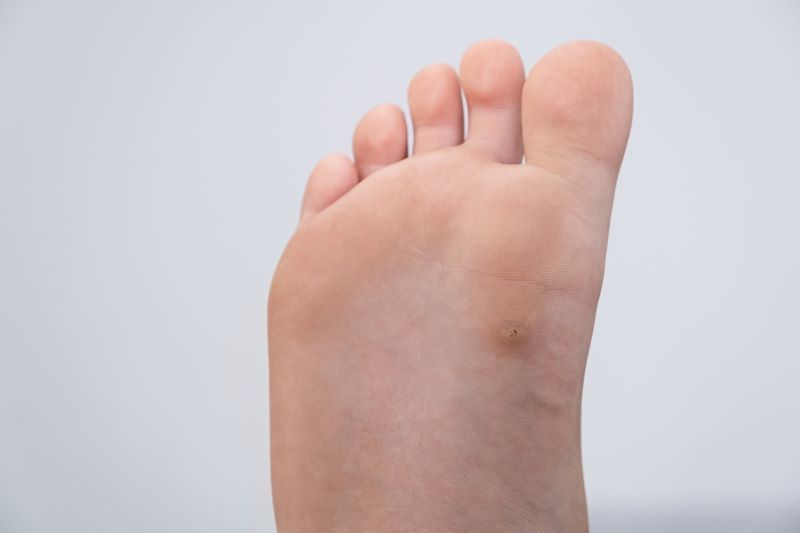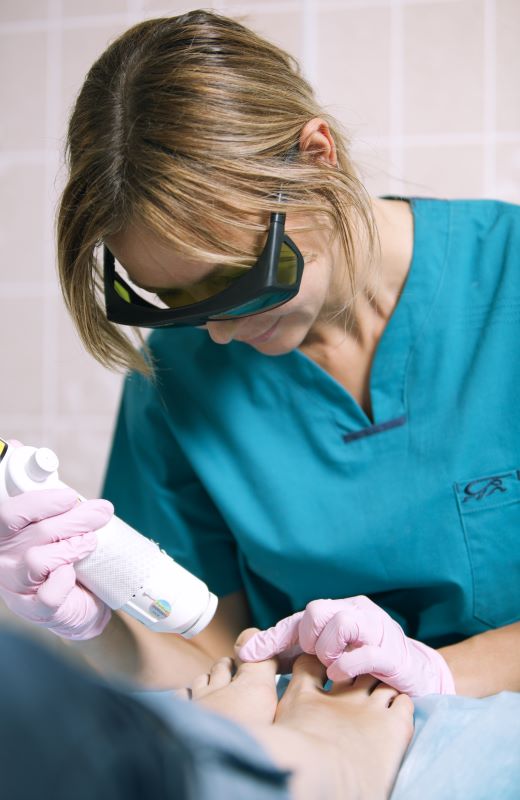Foot warts, or plantar warts, are a common condition, especially in children. Their name originates from where they develop on the body. Palmar warts are warts on the hands, while plantar are on the bottoms of the feet. Most people will have a wart at some time in their life, so it’s important to know more about this common condition for early diagnosis, treatment, and prevention. In this article, we’ll discuss if you do need to see a doctor about a foot wart, what causes plantar warts, and what plantar wart treatment options there are to keep you in good health, and doing what you love.
 What Causes Plantar Warts?
What Causes Plantar Warts?
Warts on your feet can be unsightly, painful, and spread over time without proper diagnosis and treatment. Knowing when you have a wart on your foot as early as possible, and knowing more about foot warts can greatly impact the spread, pain, and treatment options you may experience. Foot warts, or plantar warts, are relatively small growths that develop on the weight-bearing areas of the feet, such as the heels and bottoms of the feet. The weight-bearing pressure can also cause plantar warts to grow farther inward beneath a thick, hard layer of skin, referred to as a callus.
The cause of plantar warts is HPV. HPV enters the body through small breaks, cuts, or other weakened spots on the bottoms of the feet. Many plantar warts do not develop into serious conditions but you will still want to get them treated or otherwise removed. HPV is highly common, with more than 100 different types of the virus currently in existence. However, only a few types of HPV cause plantar warts. Other types of HPV are likely to cause warts on different areas of the body or mucous membranes. Not every person who comes into contact with HPV develops a wart. HPV can also affect members of the same family differently.
Symptoms of Plantar Warts
Some of the top symptoms of plantar warts include thickened, hard skin or a callus on top of a defined skin “spot” where a wart has begun growing inward, or a fleshy, small, grainy, and rough growth or lesion on the bottom of a foot, usually at the base of the forefoot and toes or the heel. Other symptoms include black pinpoints, which are clotted, small blood vessels, commonly called wart seeds, or pain when standing or walking. You can also have a lesion interrupting the normal ridges and lines in the skin of a foot. Having a lesion on the sole of a foot is a strong indicator of a plantar wart as the plantar surface is the foot sole.
 Plantar Wart Treatment
Plantar Wart Treatment
You should see a specialist for a foot lesion if you tried to treat the wart and it persists, recurs, or even multiplies. You should also see a specialist if the lesion is painful, bleeding, or changes in color or appearance. Additionally, you should seek treatment if the lesion affects your daily activities or if you have a loss of sensation or pre-existing diabetes. If you have a weakened immune system due to an immune-suppressing drug, AIDS/HIV, or other immune system disorder, you should also seek a specialist for proper evaluation and diagnosis. After making sure you have a plantar wart on your foot, a specialist may freeze it off with liquid nitrogen or inject a medicine to strengthen your immune system.
Plantar Wart Prevention
You can prevent plantar warts with regular foot care. The feet are one of the most important parts of the body but are often overlooked and neglected. A proper routine can allow you a high quality of life and the ability to run, walk, stand, and maintain your balance. Some of the top routine actions for healthy feet include wearing dry, clean socks, cleaning your feet, inspecting your feet for disease or injury, cutting your nails carefully, wearing proper fitting shoes, moisturizing your feet, and maintaining blood sugar levels.
Plantar warts can be extremely uncomfortable, painful, and unsightly, but there are different ways you can go about preventing them from developing. However, certain medical conditions put you at increased risk of developing plantar warts. The best ways to prevent these warts are to remain vigilant of your feet and seek a podiatrist early on. It can be difficult to isolate the spread of plantar warts, and areas such as surrounding pools, communal showers, change rooms, and gyms put you at increased risk of developing them.
 SWIFT Technology for Warts
SWIFT Technology for Warts
A specialist can provide you with the best in early diagnosis, treatment, and prevention of plantar warts. Comprehensive treatment options are available for several foot-related conditions, injuries, and diseases. A specialist will begin with a medical evaluation of your pain level, the area of your discomfort or pain, and medical history. They will then move on to discussing your treatment options based on the severity of your condition. You will likely explore more conservative treatment plans first, including at-home treatments. However, if these fail to relieve the condition or the condition worsens, your podiatrist may recommend a more attuned procedure.
Many people continue to experience effective relief of plantar warts with SWIFT technology. It is a new revolutionary technology using microwave energy delivered through a specific probe directly applied to the affected area of the skin to treat the wart. Due to its precision and controlled energy dosage, it is an ideal treatment option for your plantar warts. The energy can penetrate several millimeters below the skin’s surface, traveling into the affected tissue and causing water molecules to collide. This collision causes the tissue temperature to increase, leading to effective cell destruction and eradicating the damage.
Experience Relief of Your Foot Warts
Foot warts can cause pain and spread over time, causing worsened conditions and low quality of life. For early, effective relief of your foot warts, see the Foot & Ankle Specialists of Illinois today.

